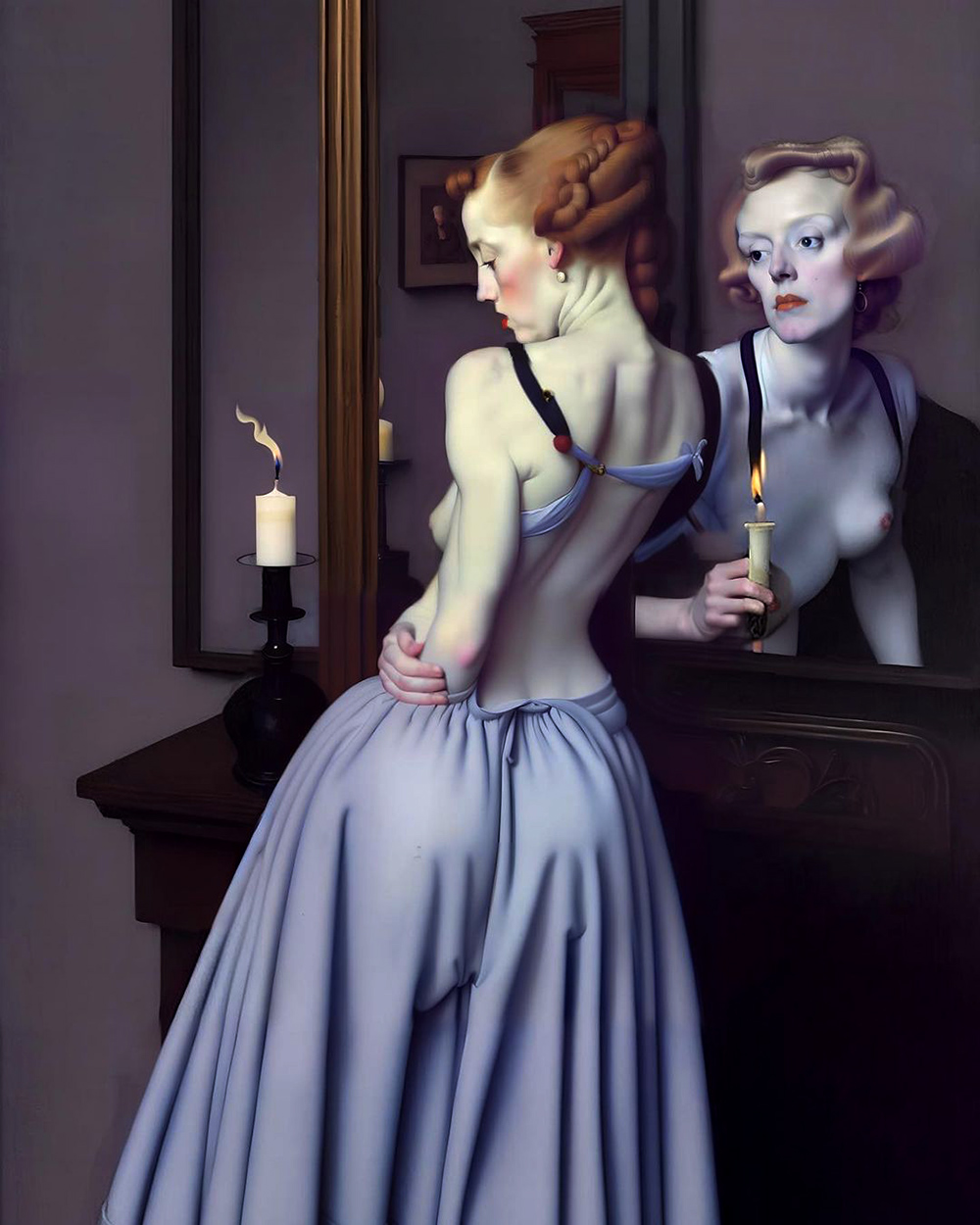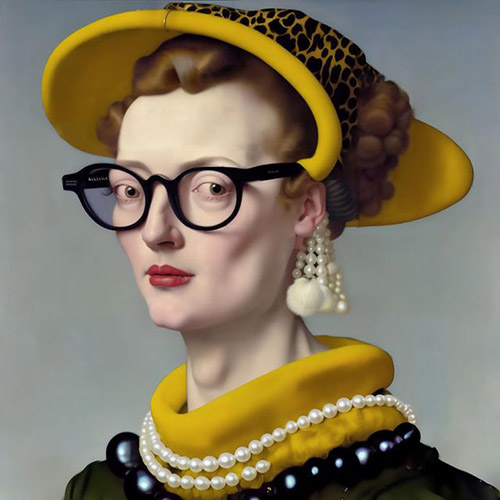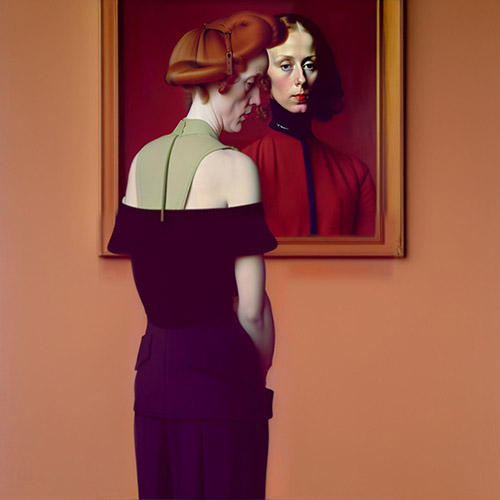To Thy goodness we commend ourselves this night beseeching Thy protection of us through its darkness and dangers. We are helpless and dependent; graciously preserve us. For all whom we love and value, for every friend and connection, we equally pray; however divided and far asunder, we know that we are alike before Thee, and under Thine eye. May we be equally united in Thy faith and fear, in fervent devotion towards Thee, and in Thy merciful protection this night.

Elizabeth felt herself growing more angry every moment; yet she tried to the utmost to speak with composure when she said: “You are mistaken, Mr. Darcy, if you suppose that the mode of your declaration affected me in any other way, than as it spared the concern which I might have felt in refusing you, had you behaved in a more gentlemanlike manner.”
She saw him start at this, but he said nothing, and she continued: “You could not have made the offer of your hand in any possible way that would have tempted me to accept it.”
Again his astonishment was obvious; and he looked at her with an expression of mingled incredulity and mortification. She went on: “From the very beginning–from the first moment, I may almost say–of my acquaintance with you, your manners, impressing me with the fullest belief of your arrogance, your conceit, and your selfish disdain of the feelings of others, were such as to form the groundwork of disapprobation on which succeeding events have built so immovable a dislike; and I had not known you a month before I felt that you were the last man in the world whom I could ever be prevailed on to marry.”
“You have said quite enough, madam. I perfectly comprehend your feelings, and have now only to be ashamed of what my own have been. Forgive me for having taken up so much of your time, and accept my best wishes for your health and happiness.”
Jane Austen famously called Pride and Prejudice ‘light & bright & sparkling’. Together with its epigrammatic minimal style, this sparkle has made it probably the most reread novel in English. The comedy of the opening sequence permeates the book and, although much happens that could have pathetic, even tragic, consequences, disasters are more successfully averted here than in Sense and Sensibility, in part because of better luck – the father does not die – in part because the reader sees much through the eyes of a vivacious, essentially cheerful heroine very different and differently placed from Elinor Dashwood. Elizabeth Bennet has a coolness and scepticism that allow her to accept foibles and common selfishness, and to see with some equability both love and lust growing and dying. Conversations are often as empty as in the other two early novels, but they are made more delicious by being refracted through the consciousness of the heroine and her sardonic father, while even the malevolence of gossip is defanged by Mr Bennet’s astringent acceptance that ‘we live, but to make sport for our neighbours, and laugh at them in our turn’.

As a recoverable narrative Jane’s life is almost exclusively a matter of family construction with authority drawn either from the teller having known her or claiming family relationship. Such a narrowly deduced documentary basis for any life is inevitably problematic regardless of how rich the surviving evidence might be and in Jane Austen’s case the evidence is also scarce. She was surrounded by family, at every waking and almost every sleeping moment and yet apparently they saw so little. Family makes, inherits, and transmits what we know as her life; it is only familial. Refracted through the prism of family, her life is also their lives: her relationships, variously perceived, to them; and their relationships, variously perceived, to each other. Through her they live; through them what we imagine as her life is shaped and circumscribed, even as it is revealed. The trickle of nonfamily biographies, which became a torrent in the final years of the twentieth century, derives, as it must, from these early accounts. Here’s the problem: how is it possible to recognize in their carefully fashioned portrait of a conformable family member the writer of such startlingly original novels: novels, moreover, that point up the difficulties and constrictions of family identity? Looked at from the other end, no one would now be interested in the life of Jane Austen if it were not for what she wrote. Though we know we must not, under pain of the crassest naïveté, read the novels into the life/the life out of the novels, nonetheless we seek to connect them: the fiction must have a plausible psychogenesis. It does not; and not only does it fail in this respect, it is disconcerting to discover how little in the early family accounts sought to make the connection.
Like Sense and Sensibility, Pride and Prejudice portrays individuals negotiating personal needs with external social demands and internalised moral codes: using manners to control or mask inevitable egoism, they manipulate talk to gratify themselves. Here, however, the negotiation is less painful and more absurd – as well as more rewarding and wry. The love plot becomes the movement of two individuals towards marriage; it is also a progress towards civility, not the superficial sort which acted as a bulwark against pain in Sense and Sensibility but something more socially and personally valuable, based on understanding another’s feelings and consequently one’s own.
In the absence of diaries, which were either destroyed or never existed, letters are the only evidence we have of a personal Jane Austen speaking/writing in her own voice, unmediated by fictional form. But they, too, are almost exclusively predicated on family communication and survive through family management. Her sister Cassandra can claim a unique role in channeling our thoughts about Jane Austen along certain lines. What we recover from the letters, as details of a life lived, what we conjecture as imagined possibility, are both derivable from the evidence preserved and the gaps created in the correspondence as Cassandra stewarded and selectively transmitted it. In this sense Cassandra is Jane Austen’s primary biographer, her relationship to the early sources that of an editor. Editing is choice, and until fairly recently, it tended in its critical methodology to submit the allowable variability of its materials to the service of a single “correct” text. Jane Austen, by Cassandra’s critical editorial act, is unsurprisingly unheterogeneous – a sister, a daughter, only a family member.

‘First Impressions’ (the early version of Pride and Prejudice) may have been drafted in 1796–7 when Jane Austen was in her early twenties. Over the next years it was read by family members and perhaps altered extensively in the early 1800s. In her own words, Austen ‘lopt & cropt’ the work, making a taut, spare text with few descriptions of person or place. Something of an earlier form may remain in the use of letters. Darcy’s brings about the éclaircissement and is tied to events, for Elizabeth reads and rereads it so that her own response converses with the contents, and the document is not inert but forms part of a dramatic scene. Elizabeth is the heroine least overwhelmed by literature and its language, but this letter is treated as other heroines treat literary texts; she soon knows it by heart and it starts to work on her mind like her own experience. But the letters from Jane and Mr Collins, conveying information or displaying eccentricity, may be relics of an earlier epistolary mode. Similarly, the grotesque characters seem close to the types in the Juvenilia in their extreme or predictable oddity; even Mr Darcy at the beginning resembles the juvenile comic boasters when his haughtiness repulses the whole village. Like the early tales and Northanger Abbey, the novel plays with conventions of eighteenth-century sentimental romance: parental interference is parodied in Lady Catherine, and the usual external obstruction is replaced by internal doubt; instead of love at first sight, a convention of sentimental and gothic fiction (see Radcliffe’s Mysteries of Udolpho), comes initial contempt and resentment edging towards fascination and love.
They were within twenty yards of each other, and so abrupt was his appearance, that it was impossible to avoid his sight. Their eyes instantly met, and the cheeks of both were overspread with the deepest blush. He absolutely started, and for a moment seemed immovable from surprise; but shortly recovering himself, advanced towards the party, and spoke to Elizabeth, if not in terms of perfect composure, at least of perfect civility.
She had instinctively turned away; but stopping on his approach, received his compliments with an embarrassment impossible to be overcome. Had his first appearance, or his resemblance to the picture they had just been examining, been insufficient to assure the other two that they now saw Mr. Darcy, the gardener’s expression of surprise, on beholding his master, must immediately have told it. They stood a little aloof while he was talking to their niece, who, astonished and confused, scarcely dared lift her eyes to his face, and knew not what answer she returned to his civil inquiries after her family. Amazed at the alteration of his manner since they last parted, every sentence that he uttered was increasing her embarrassment; and every idea of the impropriety of her being found there recurring to her mind, the few minutes in which they continued were some of the most uncomfortable in her life. Nor did he seem much more at ease; when he spoke, his accent had none of its usual sedateness; and he repeated his inquiries as to the time of her having left Longbourn, and of her having stayed in Derbyshire, so often, and in so hurried a way, as plainly spoke the distraction of his thoughts.

There is the suggestive comment made by Caroline Austen, Jane Austen’s niece, who spent extended periods of time with the elderly Cassandra, that Cassandra wanted the younger generation of Austens to remember Aunt Jane, but made sure none of them individually remembered or could reassemble too much: “it must be a difficult task to dig up the materials, so carefully have they been buried out of our sight by the past generation”. It is Caroline who describes how some time in the 1840s Aunt Cassandra “looked over and burnt” the bulk of her correspondence from her sister. “She left, or gave some as legacies to the Nieces – but of those that I have seen, several had portions cut out”. Cassandra’s intervention – whether of destruction or dissemination – fragmented the textual record at the same time as it safeguarded and preserved her sister’s memory for the next generation of Austens. But the inevitable consequence of her actions was to fuel speculation. By an inexorable logic, as Caroline’s words concede, once we know something has been destroyed it becomes far more significant than any available knowledge. Cassandra’s culling and distribution of family mementos may have been no more than an old woman’s final act of housekeeping, but it has been viewed suspiciously ever after, within and beyond the family, as an act of censorship and suppression. Whatever her motives, she created a record with deliberate holes in it.

